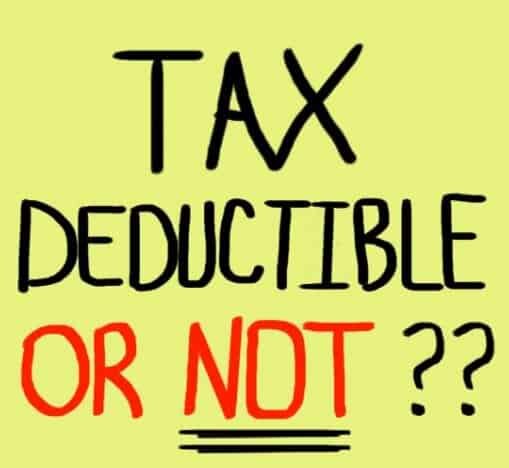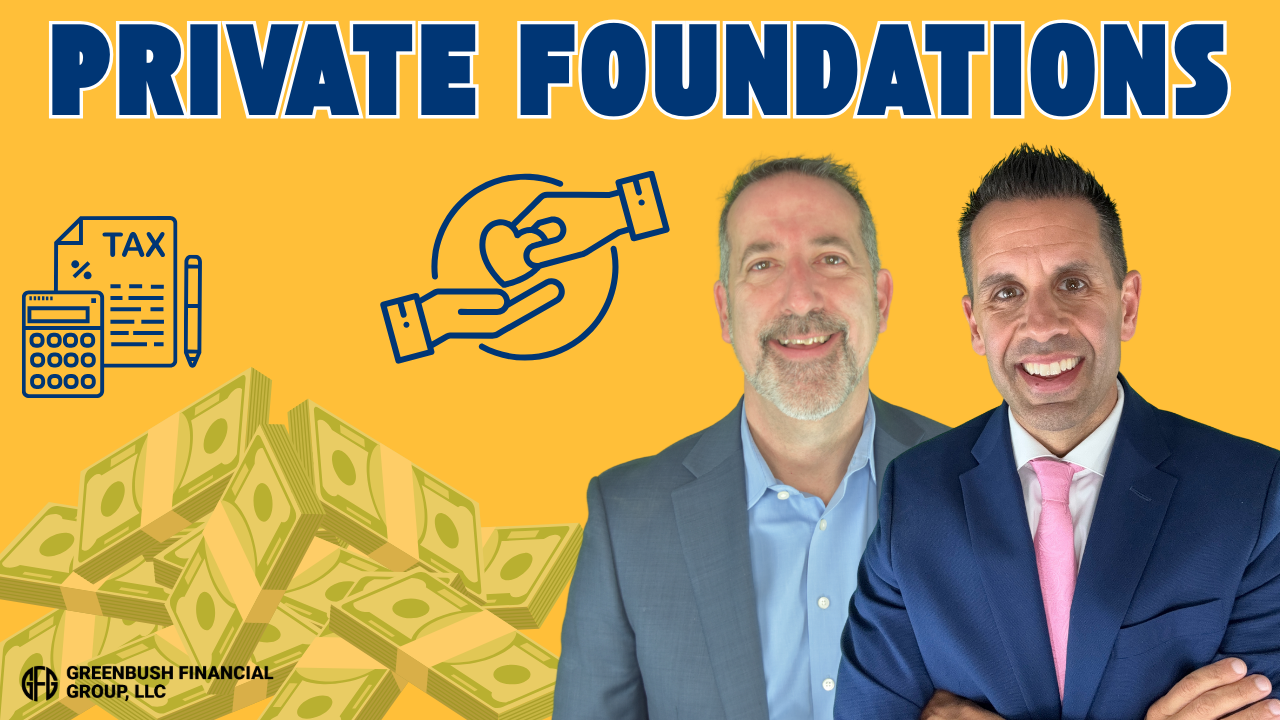
The Trump Tax Plan for 2025: Social Security, Tips, Overtime, SALT Cap, and more….
It seems as though the likely outcome of the 2024 presidential elections will be a Trump win, and potentially full control of the Senate and House by the Republicans to complete the “full sweep”. As I write this article at 6am the day after election day, it looks like Trump will be president, the Senate will be controlled by the Republicans, and the House is too close to call. If the Republicans complete the full sweep, there is a higher probability that the tax law changes that Trump proposed on his campaign trail will be passed by Congress and signed into law as early as 2025.
It looks as though the likely outcome of the 2024 presidential election will be a Trump win, and potentially full control of the Senate and House by the Republicans to complete the “full sweep”. As I write this article at 6am the day after election day, it looks like Trump will be president, the Senate will be controlled by the Republicans, and the House is too close to call. If the Republicans complete the full sweep, there is a higher probability that the tax law changes that Trump proposed on his campaign trail will be passed by Congress and signed into law as early as 2025. Here are the main changes that Trump has proposed to the current tax laws:
Making Social Security Completely Exempt from Taxation
Exempting tips from income taxes
Exempting overtime pay from taxation
A new itemized deduction for auto loan interest
Dropping the corporate tax rate from the current 21% down to 15%
Eliminating the $10,000 SALT Cap
Extension of the Tax Cut & Jobs Act beyond 2025
Even if the Democrats end up hanging on to the House by a narrow margin, there is still a chance that some of these tax law changes could be passed in 2025.
Social Security Exempt From Taxation
This one is big for retirees. Under current tax law, 85% of Social Security retirement benefits are typically taxed at the federal level. Trump has proposed that all Social Security Benefits would be exempt from taxation, which would put a lot more money into the pocket of many retirees. For example, if a retiree receives $40,000 in social security benefits each year and they are in the 22% Fed bracket, 85% of their $40,000 is currently taxed at the Federal level ($34,000), not paying tax on their social security benefit would put $7,480 per year back in their pocket.
Note: Most states do not tax social security benefits. This would be a tax change at the federal level.
Exempting Tips from Taxation
For anyone who works in a career that receives tips, such as waiters, bartenders, hair stylists, and the list goes on, under current tax law, you are supposed to claim those tips and pay taxes on those tips. Trump has proposed making tips exempt from taxation, which for industries that receive 50% or more of their income in tips could be a huge windfall. The Trump proposed legislation would create an above-the-line deduction for all tip income, including both cash and credit card tips.
Overtime Pay Exempt From Taxation
For hourly employees who work over 40 hours per week and receive overtime pay, Trump has proposed making all overtime wages exempt from taxation, which could be a huge windfall for hourly workers. The Tax Foundation estimates that 34 million Americans receive some form of overtime pay during the year.
Auto Loan Interest Deduction
Trump has also proposed a new itemized deduction for auto loan interest. However, since it’s likely that high standard deductions will be extended beyond 2026, if there is a full Republican sweep, only about 10% of Americans would elect to itemize on their tax return as opposed to taking the standard deduction. A taxpayer would need to itemize to take advantage of this new proposed tax deduction.
Reducing The Corporate Tax Rate from 21% to 15%
Trump proposed reducing the corporate tax rate from the current 21% to 15%, but only for companies that produce goods within the United States. For these big corporations, a 6% reduction in their federal tax rates could bring a lot more money to their bottom line.
Eliminating the $10,000 SALT Cap
This would be a huge win for states like New York and California, which have both high property taxes and state income taxes. When the Tax Cut and Jobs Act was passed, it was perhaps one of the largest deductions for individuals who resided in states that had both state income tax and property taxes referred to as the SALT Cap (State and Local Taxes). Trump has proposed extending the Tax Cut and Jobs Act but eliminating the $10,000 SALT cap.
For example, if you currently live in New York and have property taxes of $10,000 and you pay state income tax of $20,000, prior to the passing of the Tax Cut and Jobs Act, you were able to itemize your tax deductions and take a $30,000 tax deduction at the federal level. When TCJA passed, it capped those deductions at $10,000, so most individuals defaulted into just taking the standard deduction and lost some of that tax benefit. Under these proposed tax law changes, taxpayers will once again be able to capture the full deduction for their state income taxes and property taxes making itemizing more appealing.
No Sunset For The Tax Cut and Jobs Act
The Tax Cut and Jobs Act was passed by Trump and the Republican Congress during his first term. That major taxation legislation was scheduled to expire on December 31, 2025, which would have automatically reverted everything back to the old tax brackets, standard deductions, loss of the QBI deduction, etc., prior to the passing of TCJA. If the Republicans gain control of the House, there is a very high probability that the tax laws associated with TCJA will be extended beyond 2025.
Summary of Proposed 2025 Tax Law Changes
There could be a tremendous number of tax law changes starting in 2025, depending on the ultimate outcome of the election results within the House of Representatives. If a full sweep takes place, a large number of the reforms that were covered in this article could be passed into the law in 2025. However, if there is a divided Congress, only a few changes may make it through Congress. We should know the outcome within the next 24 to 48 hours.
It’s also important to acknowledge that these are all proposed tax law changes. Before passing them into law, Congress could place income limitations on any number of these new tax benefits, and/or new tax law changes could be introduced. It should be a very interesting 2025 from a tax standpoint.
About Michael……...
Hi, I’m Michael Ruger. I’m the managing partner of Greenbush Financial Group and the creator of the nationally recognized Money Smart Board blog . I created the blog because there are a lot of events in life that require important financial decisions. The goal is to help our readers avoid big financial missteps, discover financial solutions that they were not aware of, and to optimize their financial future.
Will Home Equity Loan Interest Be Deductible In 2019+?
The answer............it depends. It depends on what you used or are going to use the home equity loan for. Up until the end of 2017, borrowers could deduct interest on home equity loans or homes equity lines of credit up to $100,000. Unfortunately, many homeowners will lose this deduction under the new tax law that takes effect January 1, 2018.
The answer............it depends. It depends on what you used or are going to use the home equity loan for. Up until the end of 2017, borrowers could deduct interest on home equity loans or homes equity lines of credit up to $100,000. Unfortunately, many homeowners will lose this deduction under the new tax law that takes effect January 1, 2018.
Old Rules
Taxpayers used to be able to take a home equity loan or tap into a home equity line of credit, spend the money on whatever they wanted (pool, college tuition, boat, debt consolidation) and the interest on the loan was tax deductible. For borrowers in higher tax brackets this was a huge advantage. For a taxpayer in the 39% fed tax bracket, if the interest rate on the home equity loan was 3%, their after tax interest rate was really 1.83%. This provided taxpayers with easy access to cheap money.
The Rules Are Changing In 2018
To help pay for the new tax cuts, Congress had to find ways to bridge the funding gap. In other words, in order for some new tax toys to be given, other tax toys needed to be taken away. One of those toys that landed in the donation box was the ability to deduct the interest on home equity loans and home equity lines of credit. But all may not be lost. The tax law splits "qualified residence interest" into two categories:
Acquisition Indebtedness
Home Equity Indebtedness
Whether or not your home equity loan or HELOC is considered acquisition indebtedness or home equity indebtedness may ultimately determine whether or not the interest on that loan will continue to be deductible in 2018 and future years under the new tax rules. I say "may" because we need additional guidance form the IRS as to how the language in the tax bill will be applied in the real world. As of right now you have some tax professionals stating that all interest from homes equity sources will be disallowed beginning in 2018 and other tax professionals taking the position that home equity loans from acquisition indebtedness will continue to be eligible for the tax deduction in 2018. For the purpose of this article, we will assume that the IRS will continue to allow the deduction of interest on home equity loans and HELOCs associated with acquisition indebtedness.
Acquisition Indebtedness
Acquisition indebtedness is defined as “indebtedness that is secured by the residence and that is incurred in acquiring, constructing, or substantially improving any qualified residence of the taxpayer”. It seems likely, under this definition, if you took out a home equity loan to build an addition on your house, that would be classified as a “substantial improvement” and you would be able to continue to deduct the interest on that home equity loan in 2018. Where we need help from the IRS is further clarification on the definition of “substantial improvement”. Is it any project associated with the house that arguably increases the value of the property?
More good news, this ability to deduct interest on home equity loans and HELOCs for debt that qualifies as “acquisition indebtedness” is not just for loans that were already issued prior to December 31, 2017 but also for new loans.
Home Equity Indebtedness
Home equity indebtedness is debt incurred and secured by the residence that is used for items that do not qualify as "acquisition indebtedness". Basically everything else. So beginning in 2018, interest on home equity loans and HELOC's classified as "home equity indebtedness" will not be tax deductible.
No Grandfathering
Unfortunately for taxpayers that already have home equity loans and HELOCs outstanding, the Trump tax reform did not grandfather the deduction of interest for existing loans. For example, if you took a home equity loan in 2016 for $20,000 and there is still a $10,000 balance on the loan, you will be able to deduct the interest that you paid in 2017 but beginning in 2018, the deduction will be lost if it does not qualify as "acquisition indebtedness".
Partial Deduction
An important follow-up question that I have received from clients is: “what if I took a home equity loan for $50,000, I used $30,000 to renovate my kitchen, but I used $20,000 as a tuition payment for my daughter? Do I lose the deduction on the full outstanding balance of the loan because it was not used 100% for substantial improvements to the house? Great question. Again, we need more clarification on this topic from the IRS but it would seem that you would be allowed to take a deduction of the interest for the portion of the loan that qualifies as “acquisition indebtedness” but you would not be able to deduct the interest attributed to the “non-acquisition or home equity indebtedness”.
Time out……how do you even go about calculating that if it’s all one loan? Even if I can calculate it, how is the IRS going to know what portion of the interest is attributed to the kitchen project and which portion is attributed to the tuition payment? More great questions and we don’t have answers to them right now. These are the types of issues that arise when you rush major tax reform through Congress and then you make it effective immediately. There is a laundry list of unanswered questions and we just have to wait for clarification on from the IRS.
Itemized Deduction
An important note about the deduction of interest on a home equity loan or HELOC, it's an itemized deduction. You have to itemize in order to capture the tax benefit. Since the new tax rules eliminated or limited many of the itemized deductions available to taxpayers and increased the standard deduction to $12,000 for single filers and $24,000 for married filing joint, many taxpayers who previously itemized will elect the standard deduction for the first time in 2018. In other word, regardless of whether or not the IRS allows the deduction for home equity loan interest assigned to acquisition indebtedness, very few taxpayers will reap the benefits of that tax deduction because your itemized deductions would need to exceed the standard deduction thresholds before you would elect to itemize.
Will This Crush The Home Equity Loan Market?
My friends in the banking industry have already started to ask me, “what impact do you think the new tax rules will have on the home equity loan market as a whole?” It obviously doesn’t help but at the same time I don’t think it will deter most homeowners from accessing home equity indebtedness. Why? Even without the deduction, home equity will likely remain one of the cheapest ways to borrow money. Typically the interest rate on home equity loans and HELOCs are lower because the loan is secured by the value of your house. Personal loans, which typically have no collateral, are a larger risk to the lender, so they charge a higher interest rate for those loans.
Also, for most families in the United States, the primary residence is their largest asset. A middle class family may not have access to a $50,000 unsecured personal loan but if they have been paying down their mortgage for the past 15 years, they may have $100,000 in equity in their house. With the cost of college going up and financial aid going down, for many families, accessing home equity via a loan or a line of credit may be the only viable option to help bridge the college funding gap.
About Michael.........
Hi, I’m Michael Ruger. I’m the managing partner of Greenbush Financial Group and the creator of the nationally recognized Money Smart Board blog . I created the blog because there are a lot of events in life that require important financial decisions. The goal is to help our readers avoid big financial missteps, discover financial solutions that they were not aware of, and to optimize their financial future.

























































